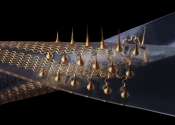New technique to freeze brain tissue without harm
A team of medical researchers at the National Children's Medical Center, Children's Hospital, Fudan University, in China, has developed a technique to freeze and thaw brain tissue without causing damage.









